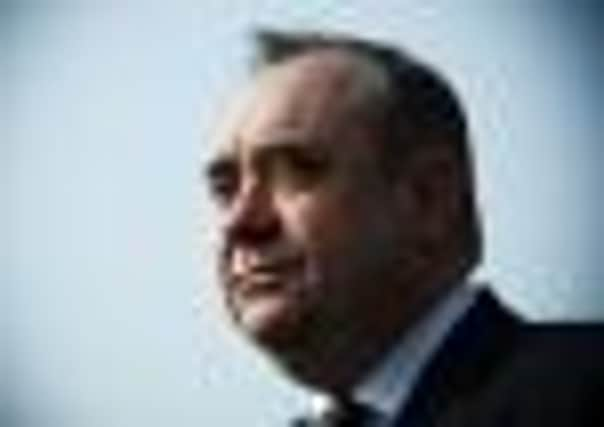Leaders: EU membership for Scotland is not a given


Lord Wallace’s argument stems the fact that the EU “constitutes a new legal order” and thus when thinking about Scotland’s place in it, consideration has to be given to EU and international law. Both Scotland’s status as an independent state, and how that would be carried into the EU have to be considered within that legal context.
He makes two important points. First, he tackles the SNP argument that Scotland would just continue as a member of the EU. A big problem for the SNP is that EU membership needs to be defined in detail including the number of votes to be used at European Council meetings, and defined within the EU treaties. That, says Lord Wallace, will have to be negotiated with the existing EU members.
Advertisement
Hide AdAdvertisement
Hide AdSecond, he says, suppose the existing members are quite happy to let Scotland in. Under what terms this would happen depends on whether the view is taken that Scotland has become a new state and the rest of the UK is regarded as a continuing member, or if the view is that two new states have been created and both have to reapply.
Lord Wallace says that international precedent – from the break-up of the Soviet Union, Pakistan’s departure from India, Ireland’s secession from the UK, the separation of Ethiopia and Eritrea, to the split between Sudan and South Sudan – is quite clear: the departing state (or states) is regarded as a new state and what remains is seen as the continuation of the old single state.
Thus, Lord Wallace contends that it is likely (not certain) that the rest of the UK would be the continuing member state, and Scotland would have to apply to join. This means that the terms of membership would be up for negotiation which casts doubt on whether current UK opt-outs of the Schengen open borders arrangements and euro currency membership could also be negotiated for Scotland.
It could be argued Lord Wallace is a UK government minister and therefore is biased. Actually, he is a law officer, obliged to pay more attention to the law than politics. His opinion carries as much weight as those of Mr Salmond’s law officers, whose advice the first minister refuses to admit exists let alone publish. It is time he did, otherwise it will be assumed their opinion is in line with Lord Wallace’s.
But this may not be the killer argument against independence that unionists imagine; rather a large proportion of Scots do not see EU membership as the unalloyed benefit it was once held to be.
Good riddance to tourist tax
ANY Scot visiting Chicago for the Ryder Cup will have found that their hotel bill carries a wallet-hurting shock.
Apart from sales tax (similar to VAT) of 9 per cent, there will have been no less than three tourist taxes levied by the state, the city, and by the convention centre, adding up to 16.4 per cent.
These make the charges for rooms a full quarter more than the advertised rate.
Advertisement
Hide AdAdvertisement
Hide AdEdinburgh City Council has toyed with the idea of introducing a similar, though much more modest, tax.
The argument is that while tourism brings in a lot of revenue to the city, it also imposes costs
in supporting the various festivals that bring in visitors, maintaining the venues visited by tourists, and in the wear and tear on roads and pavements caused by extra traffic.
Fortunately, the council has seen sense and relented. Taxing visitors rather than residents at a time when more revenues are badly needed to pay for services under severe strain has superficial attractions. But they are more than offset by the drawbacks.
Accountants PKF reported last month that the proportion of hotel rooms occupied in the city during July fell by 8 per cent, the steepest decline of any Scottish city. They also warned that some hotels may well go out of business later this year.
To add an extra tax at such times would be nonsensical.
There is also a longer-term problem. As the Chicago example suggests, tourist taxes mean check-out time contains a rude surprise.
Any visitor who feels that their stay has been less than splendid is bound to suddenly feel it has also been rather expensive. That discourages return visits and returning guests are any hotel’s most valuable customers.